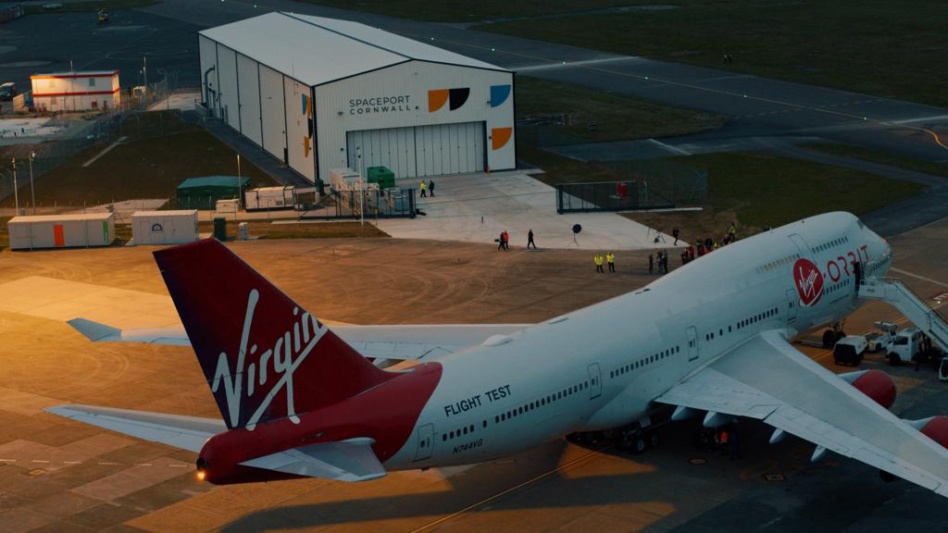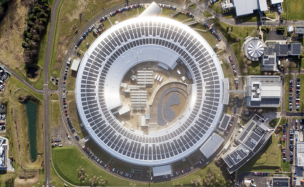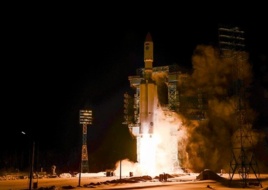Virgin Orbit’s historic first launch from the Spaceport Cornwall in the United Kingdom, Start Me Up, failed to reach orbit on Monday evening. Shares of Virgin Orbit ($VORB) were off by as much as 22% in pre-market trading on Tuesday morning.
What happened?
Virgin Orbit reported that LauncherOne had reached space, but the webcast’s mission feed began to spit off erratic telemetry data that indicated its rocket was losing altitude.
After a subsequently deleted erroneous tweet about reaching orbit, the company broke the news that the rocket’s second stage engine had experienced an anomaly:
Cosmic Girl, the modified Boeing 747 that serves as LauncherOne’s carrier aircraft, returned safely back to Spaceport Cornwall. Procured by the NRO, the mission had nine payloads on the manifest, including Oman’s first Earth observation satellite and ForgeStar-0 (the first satellite from Space Forge, an in-space manufacturing startup based in the UK).
The spaceport
Spaceport Cornwall received the UK’s first spaceport license in November. Cornwall is one of two hubs the UK is developing to expand its space launch presence. Monday night’s mission would have been the first orbital launch to take place from UK soil.
“We will work tirelessly to understand the nature of the failure, make corrective actions, and return to orbit as soon as we have completed a full investigation and mission assurance process,” Virgin Orbit CEO Dan Hart said in a statement.
Melissa Thorpe, head of Spaceport Cornwall, added: “Today we inspired millions, and we will continue to look to inspire millions more. Not just with our ambition but also with our fortitude. Yes, space is hard, but we are only just getting started.”
The long view
Start Me Up was the first of five LauncherOne missions to fall short of success while carrying customer payloads.
Previously, Virgin Orbit management had discussed launching four to six missions in 2022. The company launched just two missions last year: Above the Clouds and Straight Up. Start Me Up just narrowly missed a December attempt.
As Virgin Orbit struggles to reach its own flight cadence target—and with operations likely grounded for the foreseeable future—the company is also staring down the prospect of shrinking runway. At the end of Q3, Virgin Orbit had ~$71M. The air launcher received $25M from Sir Richard Branson’s Virgin group in November, which will help extend runway. Still, burn rate will be top of mind for investors and analysts when Virgin Orbit reports its next quarterly results.




